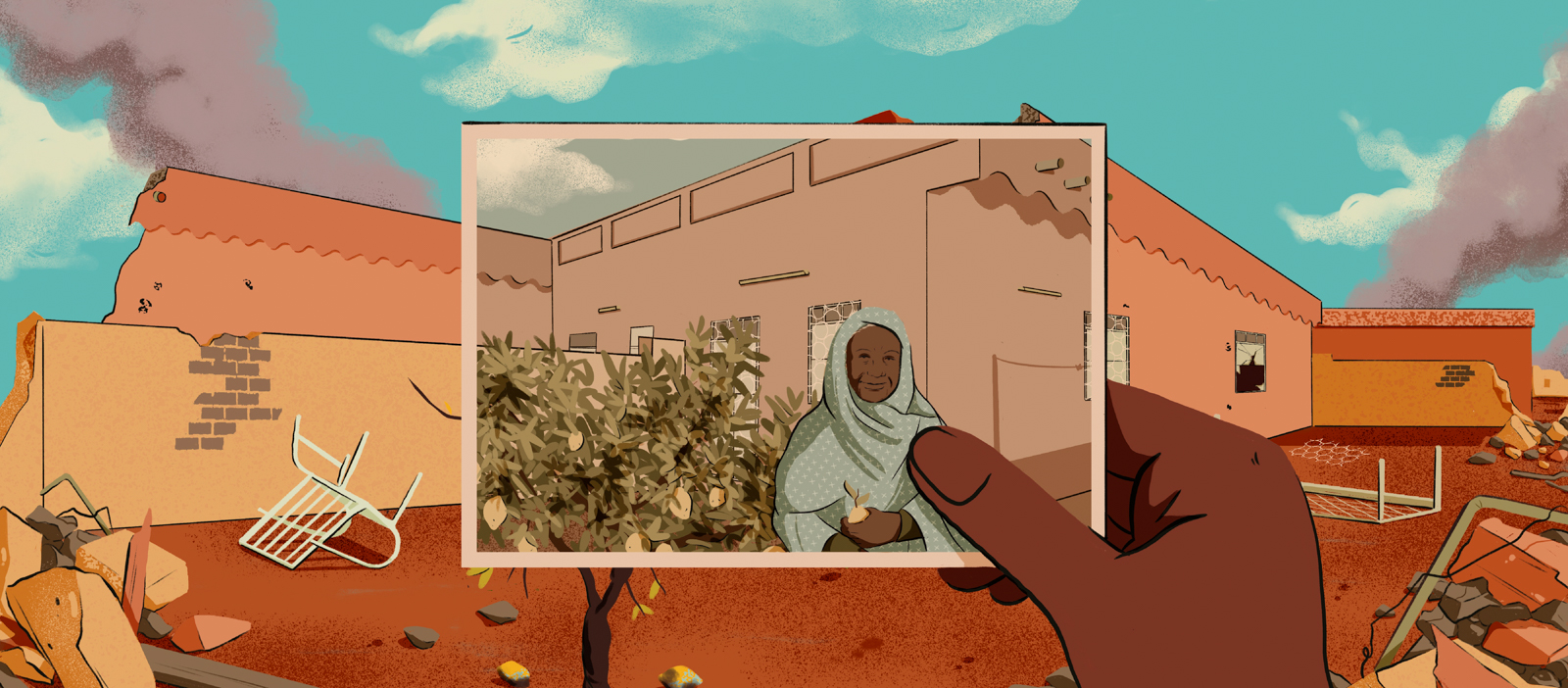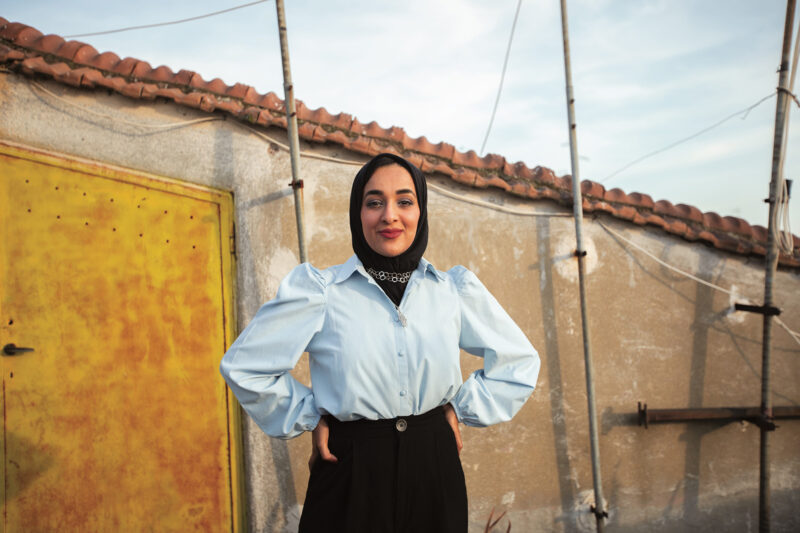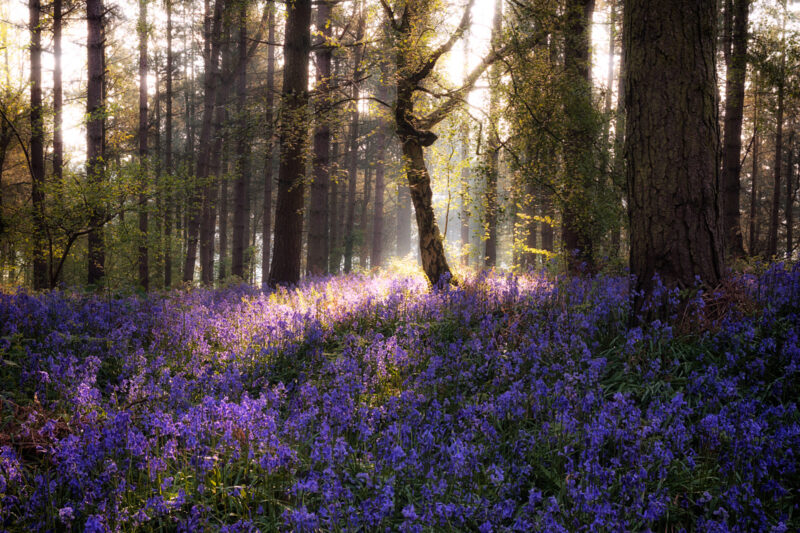
In the face of destruction in Sudan, we survive through the memories of our home
A writer reflects on the diasporic experience of seeing the violence in Sudan from afar, holding on to the memory of her grandmother’s lemon tree
My grandmother had a lemon tree at her home in Kalakla, in the south of Khartoum state. Her house, like many in Sudan, sat within a larger house. Tall outer walls encased an open courtyard, where a smaller structure stood. Her lemon tree was a short, stubby thing. Its leafy branches twisted around each other, their reach grazing the walls of the outhouse. I have a vague image of my grandmother in my mind, walking across the courtyard with frail knees to tend to that tree.
Now, strangers live in her house. They sleep in her bed, walk her halls, stir their pots in her kitchen. Knowing that they inhabit her space is painful. Each detail, each memory, makes the wound deeper. Do they sleep in her linens? Do they look at the yellowing photographs in her room and wonder about the people in them? My grandmother’s world is now someone else’s to use and I can’t comprehend that.
Our last remaining neighbours, before they too fled, peered over the low walls and confirmed what she had feared: her lemon tree is dead. Our beloved Kalakla now largely belongs to others.
It’s been almost two years since my family packed what they could and left for Egypt. They stayed at first, hoping it was a skirmish, something that would pass. But by 2023 it was clear that the war was consuming everything. In 2019 there had been hope — a revolution, an end to Omar al-Bashir’s 30-year rule. Having finally overthrown the dictator after months of protesting, we imagined a transition into something better. Instead, the Sudanese people were dealt a series of blows: a forced military dissolution of the transitional government put in place to facilitate a fair election; the declaration of a state of emergency; violent clashes between the Sudanese armed forces and paramilitary group the Rapid Support Forces that continue to this day. Each faction tearing apart the capital to satisfy their own interests.
The pain of those who had to leave everything behind is outmatched only by the pain of those who cannot leave and have nowhere to go. Having lived in the UK for 15 years now, I have been safe in my London flat, watching the war unfold on the news, hearing it on my phone.
To see this all from afar is a strange kind of disconnection. You scroll through images of buildings burning and hear of the lives lost. Then, suddenly, you’re snapped back into your daily life. Your coffee order is ready. People behind you are impatient. It feels unreal. The Sudan in your mind shifts, the memories of a place that was once whole have been replaced by its current shattered reality.
A stable feature of the diaspora experience is seeing your birthplace through the lens of others. For many, Sudan is reduced to tragic imagery: emaciated children; makeshift huts in the desert; the constant backdrop of war. The complexity, vibrance and humanity of Sudanese life often gets lost in translation. Every attempt I’ve made to correct this distortion has yielded little more than sympathetic nods.
A gulf of circumstances and hardships separates my experience from those who have been displaced, but we are brought together by the transience of our existence. And so we cling to things. In the face of everything, we hold on to memories, to objects: a lemon tree; a photograph; a recipe; a piece of fabric. These are small anchors in a world that has unmoored us.
Even then, these objects marking our lives and histories are vulnerable. In September, the RSF ransacked the Sudan National Museum, which housed the world’s largest Nubian archaeological collection, artefacts from the Kingdom of Kush (from the 8th century BC) and the mediaeval Kingdom of Alwa (6th–16th century). Among the stolen treasures were Meroitic jewellery and the stone tablet of King Tanutamani, a relic that told the story of his triumph and rule. These items weren’t just pieces of the past; they were touchstones of who we are.
It surprised me how deeply that loss stung. The suffering in Sudan is so immense — people are dying, starving — yet the theft of those objects felt like an added blow. Our history is being looted, stripped from us. When Sudanese artefacts are taken from their rightful context, they become emblems of a deeper erasure. Much like our tree in Kalakla, remnants of life wither away in absence of hands that understand the weight of what they hold.
I often wonder what it will be like if — when — we return, and what will remain of Sudan.
If, God willing, we are lucky enough to gather in my grandmother’s house again on a hot summer night, how could we close our eyes, knowing they might have slept in our beds? What do you do when your lemon tree dies?
Even before the war, the Sudanese diaspora had lost, or relinquished, some claim to the physical land. In doing so, we had to develop an understanding of Sudan as not just a space but an evolving social and cultural construction. While I still hope to reclaim our corner of the desert, I have come to understand that Sudan is not lost.
My grandmother in Egypt, mourning her dead lemon tree — that is Sudan. It is in the rituals we maintain and the intense familiarity between Sudanese strangers. Sudan is in artists sculpting the next generation of national treasures so that our identity is held not only in relics of the past, but also in monuments to the future.
 Newsletter
Newsletter













